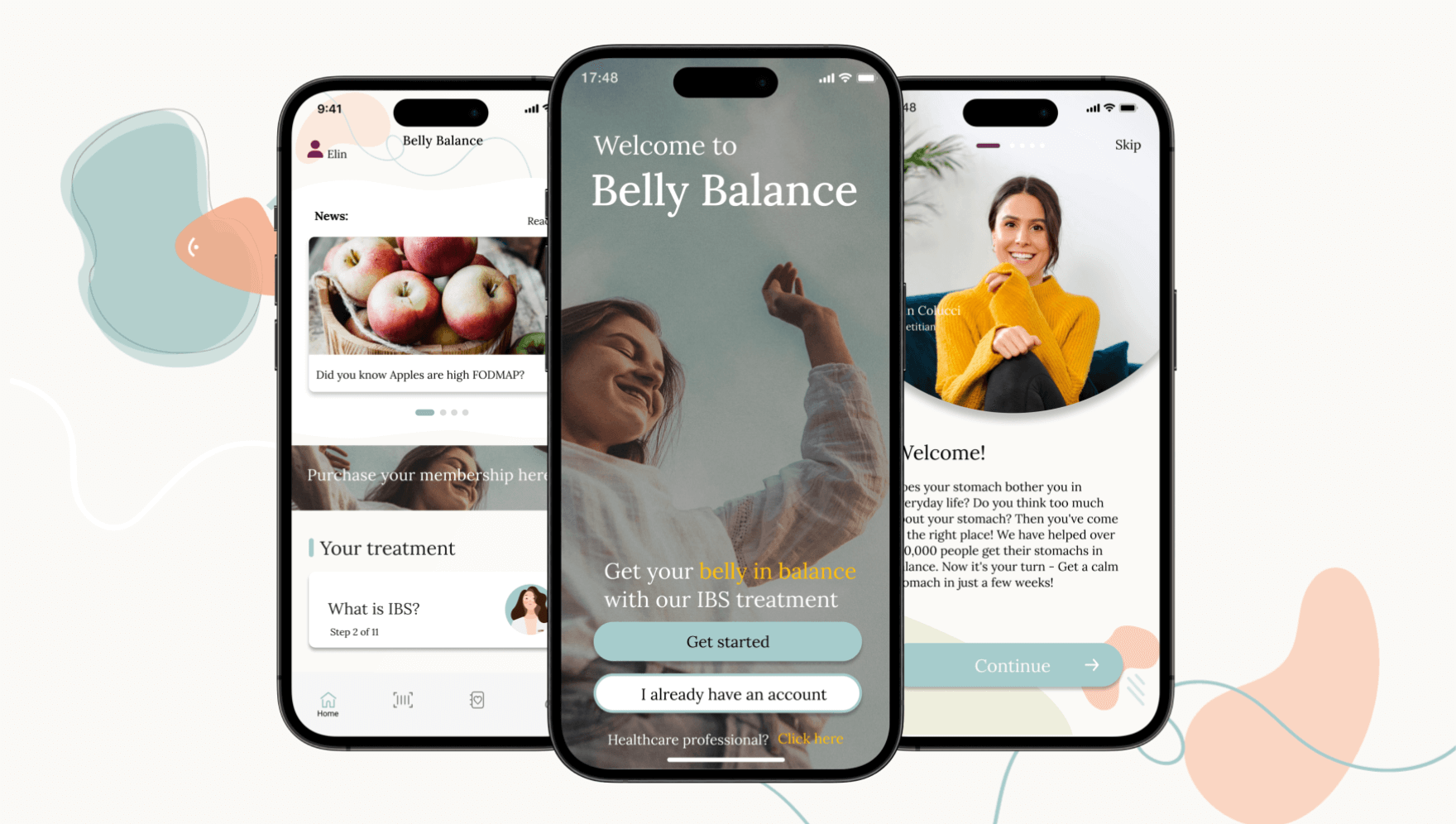
Myths about IBS
There are several common myths about IBS. Unfortunately, these myths often do more harm than good. As we know, there are no quick fixes, but there are solutions that we know work. For us, the most important thing is that you feel your symptoms are reduced and less bothersome, and that’s the knowledge we share in our IBS treatment. So here, we want to debunk some common myths about IBS .
Myth 1: IBS is all in your head
IBS is NOT in your head. However, we often hear that people with stomach issues are told by their doctor to stop thinking about their stomach, and it will probably sort itself out, or they are quickly offered antidepressants. You are not necessarily depressed, you just have a gut that affects your life and makes things very difficult for you. Of course, you are impacted by that. And yes, there are people who need antidepressants and are helped by them because they can calm an anxious gut. But most people probably don’t want that as the first option if they can feel better by changing their diet.
Myth 2: There’s nothing you can do
Yes, there is plenty you can do. The first step is to see a doctor and make sure you get a diagnosis. You are entitled to that, and remember, there’s no such thing as a diagnosis like “possible IBS” or “you might have IBS.” Stand your ground, demand a diagnosis, and if necessary, change doctors. There are good doctors out there. Afterward, try the FODMAP diet along with stress management, for example, through Belly Balance’s digital IBS treatment. Of those who follow the treatment, 85% feel better.
Myth 3: Just cut out what makes you feel bad
Perhaps the worst advice you can give to someone with IBS. Why? Because it’s almost impossible to know what causes symptoms unless you’ve been explained how the gut works and how long it takes for symptoms to appear. Once you know that, you can start piecing things together, often troubleshooting one, two, or even three meals back. It’s a good idea to keep a food diary to get an overview.
Myth 4: Eat more or fewer fibers
No, eat the RIGHT KIND of fibers. We need fibers, much more than we consume today. But to avoid bloating, it’s crucial to eat the right type of fiber, which are those that are low-FODMAP and, therefore, don’t have the potential to ferment in the gut. Brown rice, quinoa, kiwi, oats, lentils, and bananas are just a few fibers that your gut likes and needs, so choose the right ones.
Myth 5: Avoid gluten
Well, it’s not gluten that’s the problem here since it’s a protein and therefore cannot ferment in the gut. It’s the fibers in the grains that cause the issues. The gentlest grains are oats and spelt, and the worst is rye. Wheat and barley fall in between. Does that mean you should go gluten-free? Yes, you can, as both the gluten protein and the fibers are removed. Read more about gluten free food and FODMAP. Just remember that many gluten-free products are quite unhealthy. More sugar and fat are often used, and many additives. Most people with IBS can also tolerate a little regular bread, especially sourdough, and who doesn’t want to enjoy some bread every now and then?!
Sofia Antonsson
Reg. Dietitian, Belly Balance
Read more about

IBS - What is it?
Bloated , constipated or having a gassy stomach? IBS or Irritable Bowel Syndrome is a functional gastrointestinal disorder, meaning no physical issues can be found in the stomach or intestines; they just don’t function quite as they should.

How the app works
Download the app and become part of our community. We assist you in achieving a calm and happy stomach through treatment and tools available directly in the app.

About FODMAP
By learning which foods upset your stomach, you can make conscious choices and get quick symptom relief. With the low FODMAP diet, you receive structured assistance in understanding which foods your body tolerates better than others. No more guessing and pondering – you get the answer straight away!

